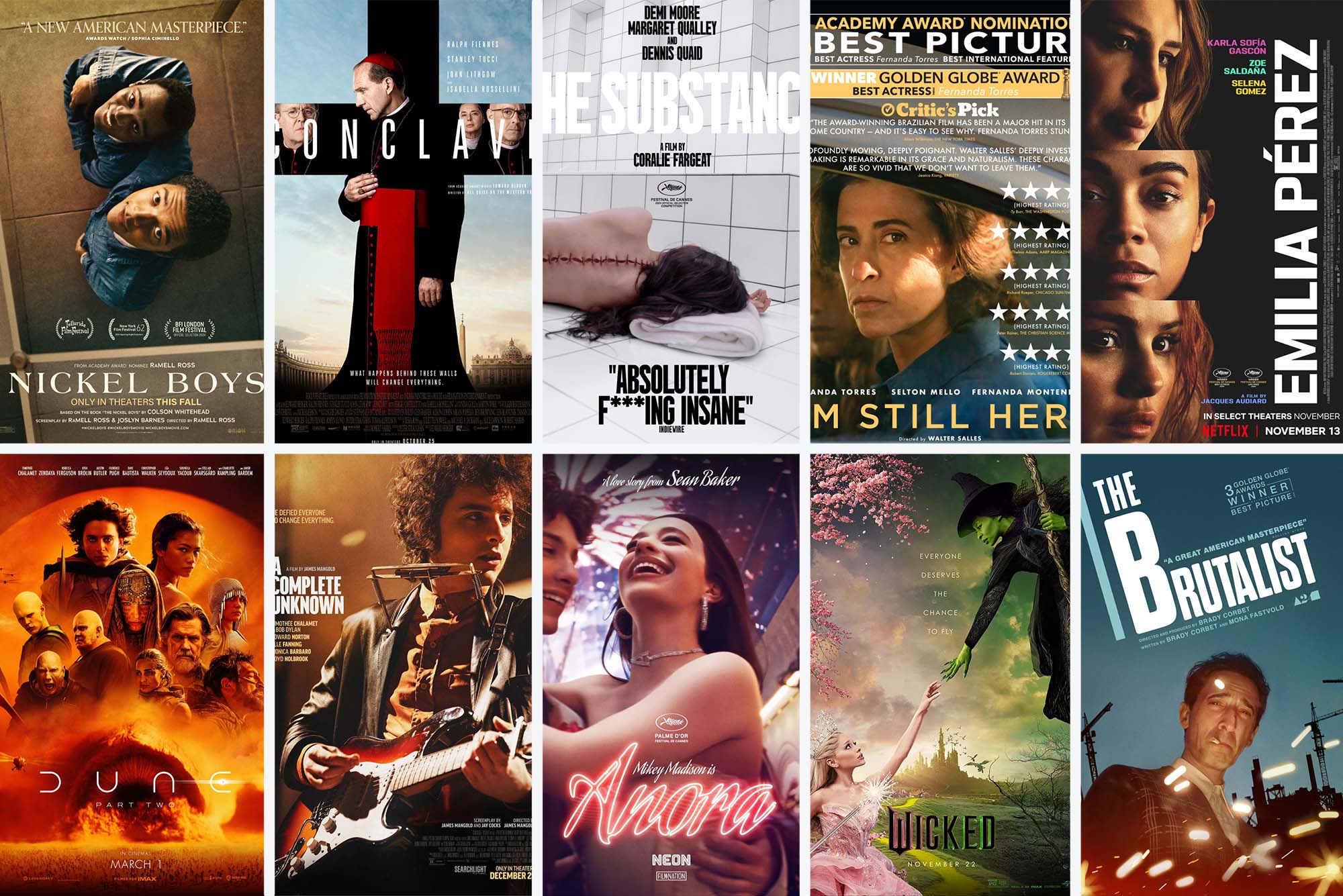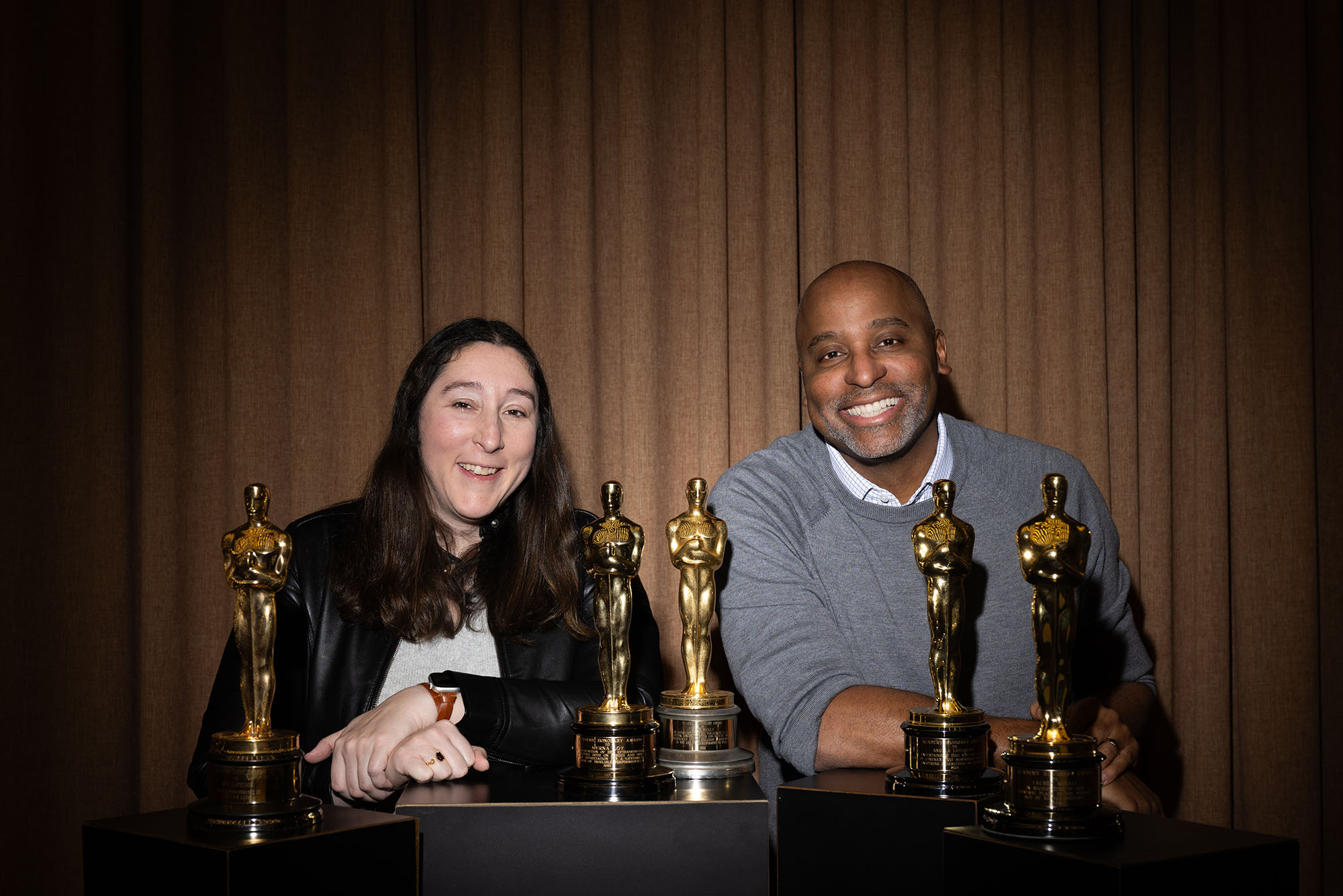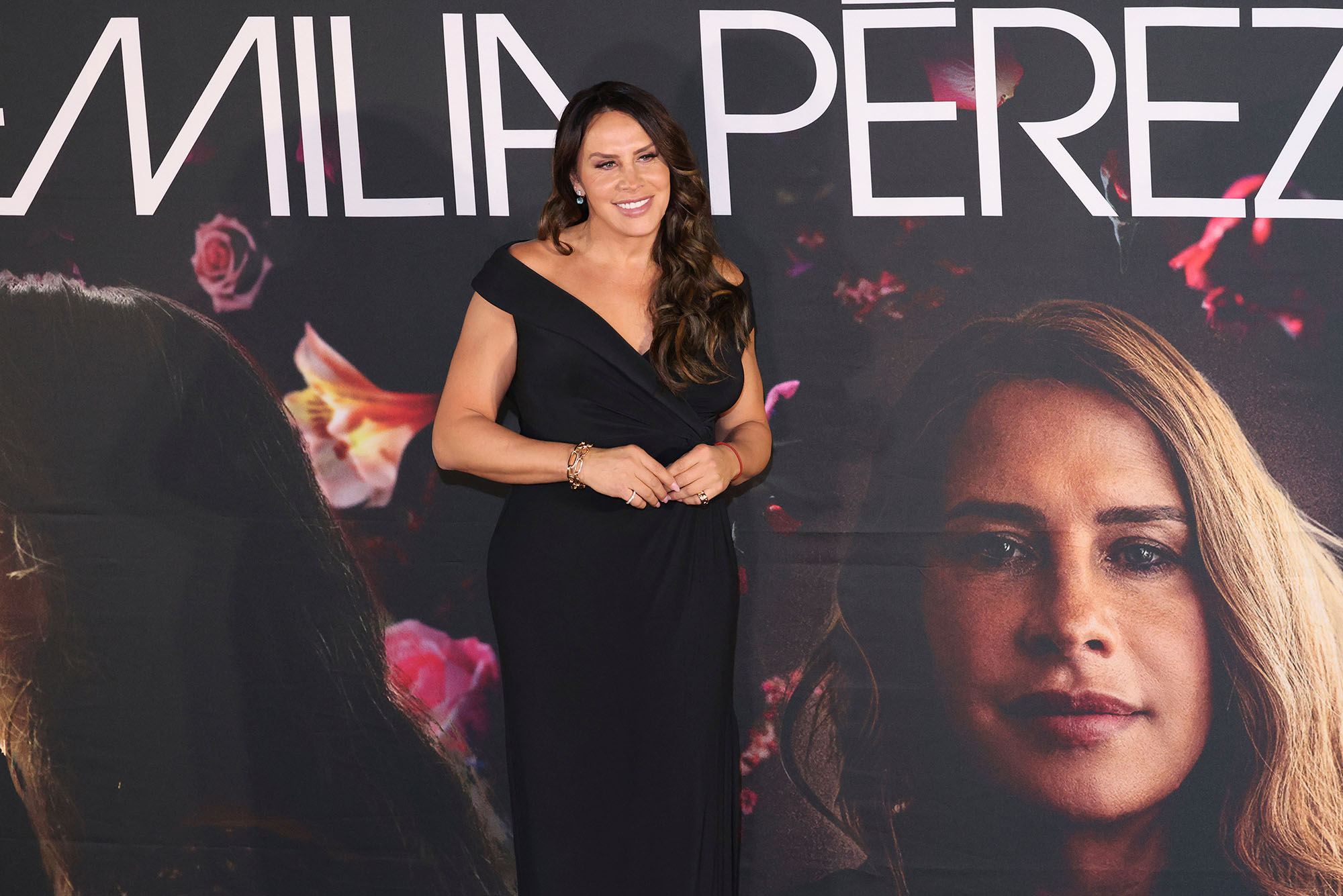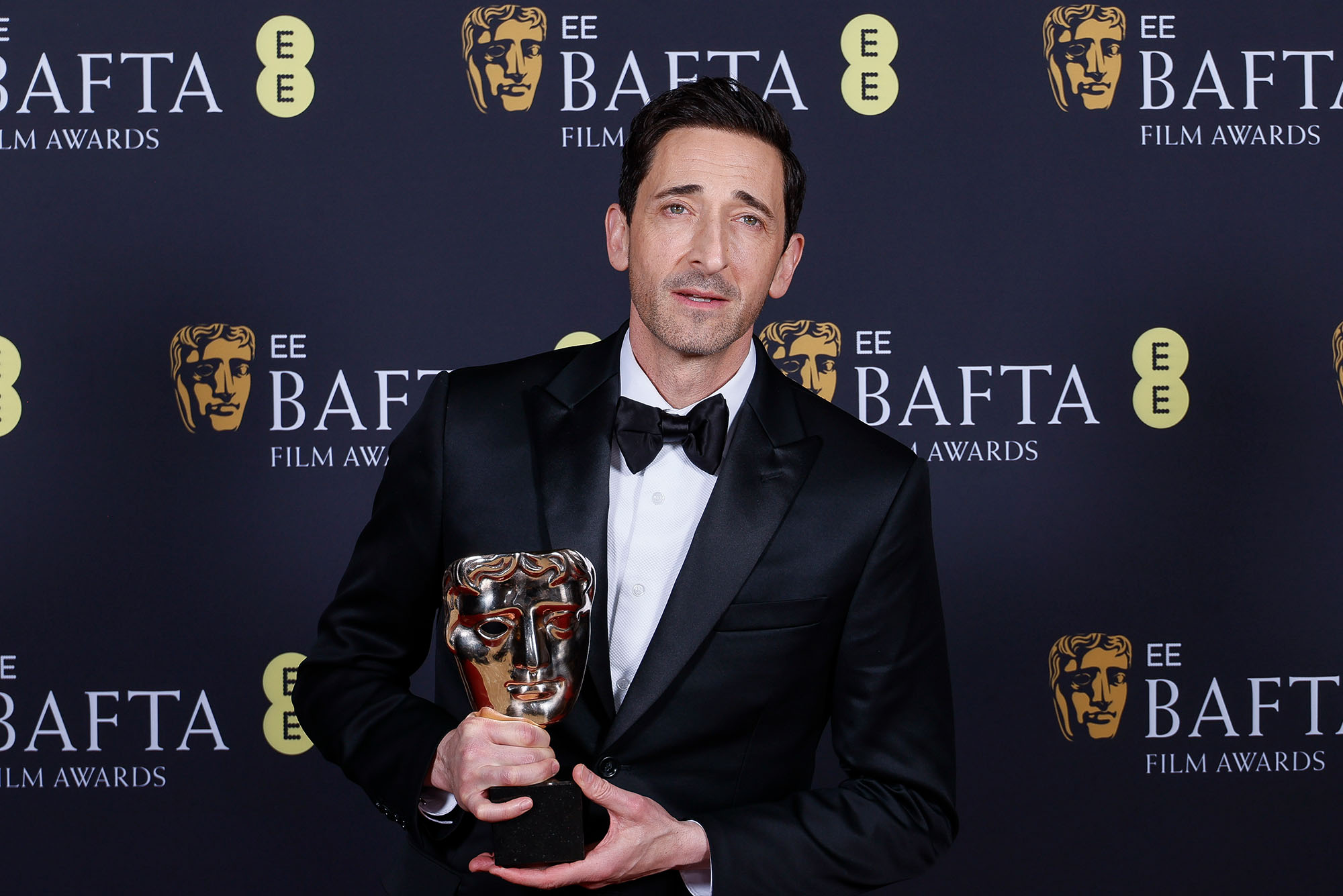The Academy Awards Are Sunday: Will It Be a Wicked Night?

Films nominated for this year’s Academy Award for best picture. Unlike last year, when Oppenheimer was the clear favorite to win (and did), this year’s race for Hollywood’s biggest prize seems to be up for grabs. Photos via IMDb
The Academy Awards Are Sunday: Will It Be a Wicked Night?
The show goes on after devastating Los Angeles fires, and BU film experts say Emilia Pérez, The Brutalist, A Complete Unknown, and Anora will likely win Oscars
Sunday night, tens of millions of people around the globe will tune in live (or later on various social media platforms) to watch the 97th Academy Awards ceremony, even as cleanup from the devastating Los Angeles wildfires continues just outside the doors of the Dolby Theatre.
When this year’s nominees were announced, there were, in keeping with tradition: plenty of surprises, snubs, and potential “firsts.” The controversial musical/crime film Emilia Pérez, about a Mexican cartel leader who enlists a lawyer to help them disappear, led the list with 13 nominations, followed by another musical, Wicked, and the drama The Brutalist, with 10 nominations each.
Emilia Pérez seemed favored for best picture, but a social media scandal involving one of the film’s stars, Karla Sofía Gascón, could change that. The controversy could also dim Gascón’s chances of becoming the first trans person to win a Best Actress award. Will Anora, a comedy about a sex worker who marries the son of a Russian oligarch, win best picture? Or could it be Conclave, the star-studded papal thriller that recently took top honors at the BAFTAs and the Screen Actors Guild Awards?
To gain some insight into this year’s nominees and what to expect Sunday, BU Today spoke with film scholar Harvey Young, dean of the College of Fine Arts and a College of Arts & Sciences professor of English, and Betsy Walters (COM’20, GRS’25), whose PhD dissertation is about the Academy Awards and their cultural relevance.
This interview has been edited for length and clarity.

Q&A
With Harvey Young and Betsy Walters
BU Today: What surprised you most about this year’s nominations?
Young: I thought there would be more big-budget sequels among the nominees. They dominated the box office. I’m glad that Academy members mostly sought out smaller films.
Walters: It was a bit surprising that Emilia Pérez and the Bob Dylan biopic, A Complete Unknown, received as many nominations as they did, and certainly the Brazilian film I’m Still Here, which came on very strong with Best Actress and Best Picture nominations.
BU Today: Who got snubbed this year?
Young: John M. Chu, the director of Wicked. That’s a snub that rankles.
Walters: A lot of people were surprised that Challengers received no nominations, particularly its score. It’s a bit of a surprise to see Fernanda Torres (I’m Still Here) get a Best Actress nomination over some big-name past Oscar winners like Nicole Kidman and Angelina Jolie.
BU Today: It was a big year for Netflix, which notched 16 nominations (13 for Emilia Pérez alone)—beating out all the major studios. What does that say about the future of the film industry?
Young: Netflix, Amazon, and Apple are the big studios alongside Disney. None of their businesses depend on people buying movie theater tickets. That’s a huge shift. It’s also a reminder of a long-held truth: the arts require subsidy.
Walters: Netflix really, really wants Oscars. It represents an interesting tension, because on the one hand, they’re trying to “disrupt” these industry norms, but on the other, they need traditions like the Oscars to validate that they’re making good movies.

BU Today: Emilia Pérez looked like it had a chance to sweep the Oscars. Is there still any possibility of that, given the scandal surrounding the film’s leading actress?
Young: Emilia Pérez had wind in its sails earlier this awards season, but it’s currently in the doldrums. It will win a batch of awards, but not everything it’s nominated for.
Walters: I think it had a real shot at taking a pretty good Oscar haul, but the scandal around Karla Sofia Gascón has cost the film a lot of traction and made the race a lot more open. It’s remarkable, because the film is so polarizing and came with a lot of baggage even before the scandal—namely the critique that it perpetuates stereotypes about Mexico and its people. And some organizations like GLAAD [Gay and Lesbian Alliance Against Defamation] have taken issue with the main character’s transition in the film.
BU Today: OK, let’s turn to your predictions for who will win in the major categories, starting with best picture. Who should win and who will win?
Young: The Brutalist will win. I spent the first 15 minutes of Anora wondering how it was even nominated for Best Picture and the last 20 minutes convinced that it might be the dark horse for Best Picture. For that journey alone, I’ll say that Anora should win.
Walters: Emilia Pérez seemed like the front-runner, but the recent scandals have taken a toll. Anora winning the top PGA and DGA awards suggests that it’s the new front-runner (and I loved it—comedy is a genre that is underrepresented at the Oscars, and it’s hilarious, if also heartbreaking). The Oscars are voted on by preferential ballot, which often means that the films that are broadly popular end up winning—i.e., people choose their very favorite film for No. 1 (which can be polarizing, love-it-or-hate-it type choices), and the No. 2 vote goes to a film that’s a little more well-liked by everyone. The number two film often ends up winning in that case, since it gets more overall support, and that might benefit films like Conclave, A Complete Unknown, or Wicked, which have broader appeal.
BU Today: This year, only one woman—Coralie Fargeat—was nominated for best director (for the horror film The Substance). What does that say about Hollywood’s recent efforts to diversify its directing ranks?
Young: Coralie Fargeat wrote, directed, and produced her film. It’s a reminder that artists need to be entrepreneurial and create opportunities for themselves. Also, we need to think about how to encourage more women and folks of color to go into producing. Producers choose the stories they want to tell and hire the people they feel are best equipped to tell them.
Walters: The directing category is where we really see the long-standing impact of the industry’s history of excluding women and people of color. Historically, most directors have been white men; thus, the Academy’s Director’s branch, which chooses the five nominees, has historically been overwhelmingly white and male. The Academy is definitely diversifying, and Hollywood is undoubtedly making progress. However, the past two years gives the impression, fairly or otherwise, that there is only one nominee slot available for a woman or BIPOC director each year… There is still a ton of work to do.
BU Today: Who will and who should win Best Director?
Young: Jacques Audiard will win for Emilia Pérez. Sean Baker (Anora) is a close, close second.
Walters: Sean Baker just won the DGA Award for Anora, so I think that makes him the favorite, though I could also see Brady Corbet (The Brutalist) winning for making a really sweeping, epic film on a relatively small budget.

BU Today: Turning to the acting categories, what are your predictions for Best Actress?
Young: Cynthia Erivo should win for Wicked. Demi Moore will win for The Substance—and as a person who spent the 1990s watching her films, I won’t complain.
Walters: Demi Moore seems to be leading this race and gave a terrific speech at the Golden Globes (which often helps boost an Oscar candidacy). She’s got a great history, too, given her long history in Hollywood without much critical/awards recognition. I think she’ll be hard to beat, though I thought Mikey Madison was excellent in Anora. Fernanda Torres (I’m Still Here) might also be a dark horse candidate; she seems to be gaining momentum. I wish Cynthia Erivo was in the discussion more, but she may get another shot for playing Elphaba again next year in the second part of Wicked.
BU Today: Who do you think will win Best Actor?
Young: Adrien Brody (The Brutalist) is the favorite, but I’m going with Colman Domingo (Sing Sing) for the win. It’s a long, long shot. Highly unlikely, but faith and fandom aren’t always rational.
Walters: Adrien Brody has the inside track, unless Academy voters hold the AI revelations against him (particularly since it was his Hungarian accent/pronunciation, as well as that of Felicity Jones, that was tweaked). That doesn’t seem to be impacting him too much at this point—I think that storm has passed, overall—but in that case, I could see Timothy Chalamet (A Complete Unknown) or Ralph Fiennes (Conclave) swooping in for the upset. I think Fiennes is a dark horse, to be honest—everyone’s talking about Chalamet, but he’s still got plenty of time and great performances in him, and Fiennes is an actor who is seen as overdue in a movie that’s very Oscar-y.

BU Today: And for best supporting actor and actress?
Young: Yuri Borisov’s slow emergence in Anora is captivating, but Kieran Culkin (A Real Pain) will win best supporting actor. Zoe Saldaña (Emilia Pérez) should and will win best supporting actress.
Walters: The best supporting actor category is the most like a lock: Kieran Culkin seems to be the overwhelming front runner. I think Zoe Saldaña is still the most likely to win best supporting actress, and an award for her is also a way for the Academy to recognize Emilia Pérez, a movie the Academy loves, given all its nominations—despite the controversy. I could see Isabella Rossellini (Conclave) winning, sort of like Jamie Lee Curtis’ win a couple of years ago for Everything, Everywhere All At Once—the Academy loves to honor people who’ve had long and amazing careers, but haven’t won yet. And Ariana Grande was astonishingly good in Wicked.
BU Today: What other categories will you be watching closely Sunday night?
Young: Production design. The work of every nominee was exceptional. I want them all to win.
Walters: I’ll definitely be looking at the Best International Feature category—which is another place where Emilia Pérez seemed like a lock, but now looks pretty wobbly. We also have an interesting category in the Documentary Feature category, where the nominee No Other Land is highly acclaimed, but couldn’t get a distributor (it’s about activists and journalists in the West Bank, so distributors probably didn’t want to take a chance, given the heightened tension around Israel and Palestine right now). There’s a lot of public support for the film, so it will be interesting to see if it wins. Finally, I’d say that awards for things like editing and cinematography usually (key word: usually) give us a sense of which films are best positioned to take Best Picture. In a pretty open year, any small hint like that is helpful.
BU Today: Finally, this year’s ceremony comes on the heels of devastating wildfires in California that left 28 people dead and about 75,000 homeless. Some in the industry called for the Academy Awards ceremony to be canceled and the money that would have been spent on it donated to help victims. The Academy did in fact cancel the annual awards luncheon and donated $1 million to wildfire relief efforts. What kind of tone should the broadcast strike?
Young: Resilience might be the main theme. There will be calls for viewers to contribute and donate in support of people displaced by the fires. I would not be surprised to see someone identifiably impacted by the fires—perhaps actor Steve Guttenberg, who lost his home—making a brief appearance to spotlight the tragedy.
Walters: I think the recent Grammy telecast offered a pretty good template—they provided really tangible ways to help, turning the show into a pseudo-telethon and spotlighting some of the businesses impacted by the wildfires, while still doing what the Grammys always do—lots of performances, a smattering of awards presentations. During calls to cancel the Oscars, there was a point often raised: a ton of people in LA get much-needed work from the Oscars and other awards shows. It’s a really big ecosystem, and this is a town and industry that’s still reeling from the labor strikes in 2023, so it would be great if the Academy uses the Oscars to help actively revive the industry and aid relief efforts, not just create a tribute montage and go on with business as usual. I hope we’ll see a more somber show that attempts to harness this huge audience they have to effect real change.
The 97th annual Academy Awards will be broadcast live from the Dolby Theatre in Los Angeles on Sunday, March 2, starting at 7 pm ET. The show will also stream live on Hulu, YouTubeTV, and FuboTV. Find a complete list of this year’s nominees here.

Comments & Discussion
Boston University moderates comments to facilitate an informed, substantive, civil conversation. Abusive, profane, self-promotional, misleading, incoherent or off-topic comments will be rejected. Moderators are staffed during regular business hours (EST) and can only accept comments written in English. Statistics or facts must include a citation or a link to the citation.